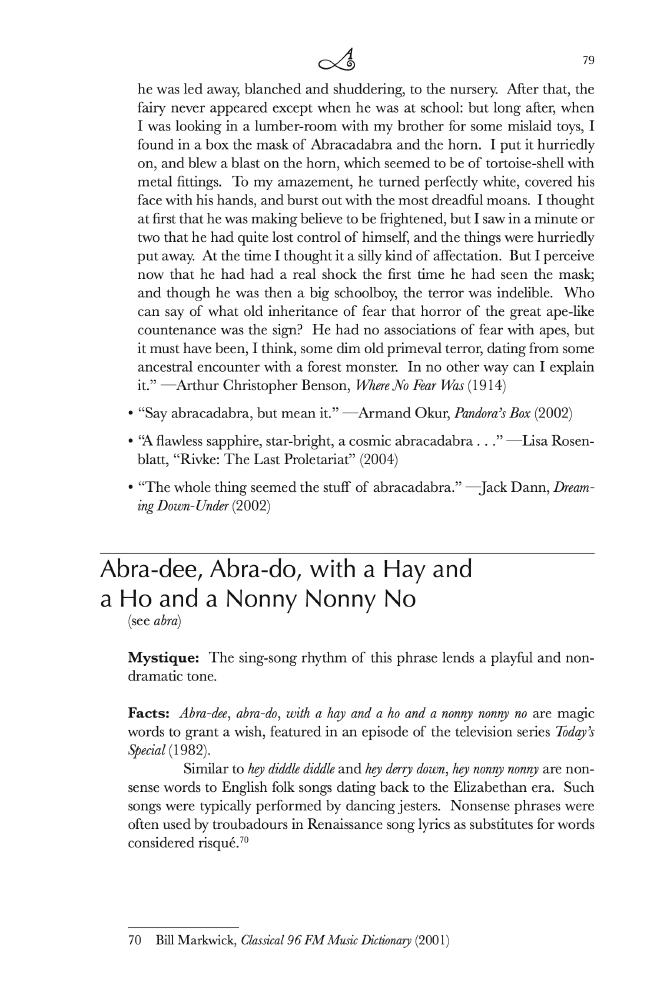
A
he was led away, blanched and shuddering, to the nursery. After that, the
fairy never appeared except when he was at school: but long after, when
I was looking in a lumber-room with my brother for some mislaid toys, I
found in a box the mask of Abracadabra and the horn. I put it hurriedly
on, and blew a blast on the horn, which seemed to be of tortoise-shell with
metal fittings. To my amazement, he turned perfectly white, covered his
face with his hands, and burst out with the most dreadful moans. I thought
at first that he was making believe to be frightened, but I saw in a minute or
two that he had quite lost control of himself, and the things were hurriedly
put away. At the time I thought it a silly kind of affectation. But I perceive
now that he had had a real shock the first time he had seen the mask;
and though he was then a big schoolboy, the terror was indelible. Who
can say of what old inheritance of fear that horror of the great ape-like
countenance was the sign? He had no associations of fear with apes, but
it must have been, I think, some dim old primeval terror, dating from some
ancestral encounter with a forest monster. In no other way can I explain
it." -- Arthur Christopher Benson, Where No Fear Was (1914)
• "Say abracadabra, but mean it." -- Armand Okur, Pandora's Box (2002)
• "A flawless sapphire, star-bright, a cosmic abracadabra . . ." -- Lisa Rosenblatt,
"Rivke: The Last Proletariat" (2004)
• "The whole thing seemed the stuff of abracadabra." -- Jack Dann, Dreaming
Down-Under (2002)
Abra-dee, Abra-do, with a Hay and
a Ho and a Nonny Nonny No
(see abra)
Mystique: The sing-song rhythm of this phrase lends a playful and non-
dramatic tone.
Facts: Abra-dee, abra-do, with a hay and a ho and a nonny nonny no are magic
words to grant a wish, featured in an episode of the television series Today's
Special (1982).
Similar to hey diddle diddle and hey derry down, hey nonny nonny are nonsense
words to English folk songs dating back to the Elizabethan era. Such
songs were typically performed by dancing jesters. Nonsense phrases were
often used by troubadours in Renaissance song lyrics as substitutes for words
considered risqué.70
70 Bill Markwick, Classical 96 FM Music Dictionary (2001)